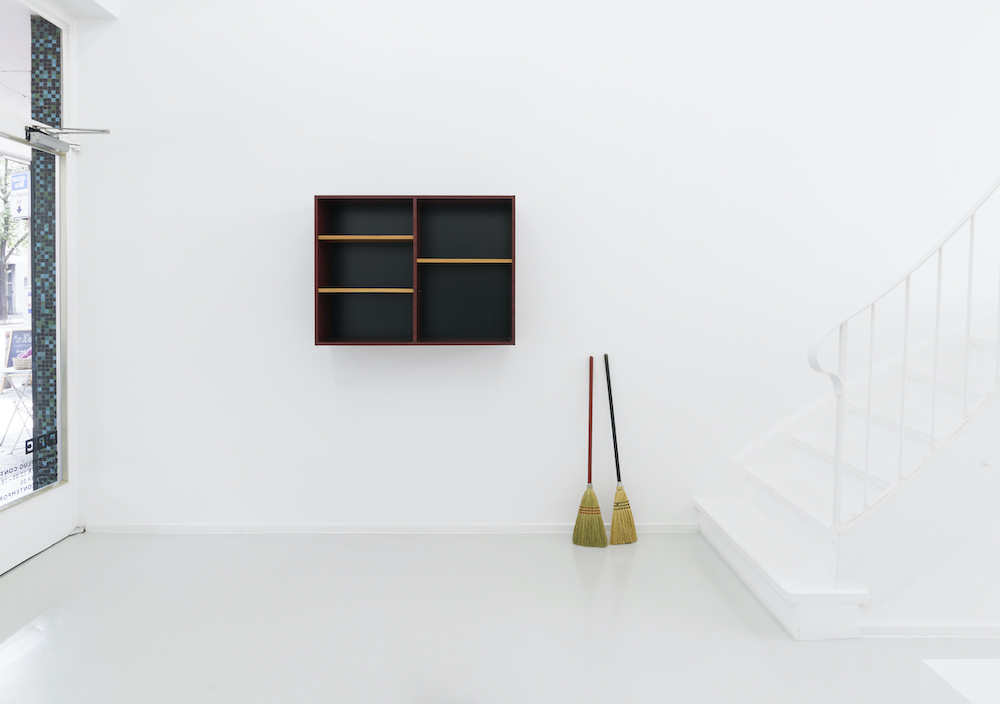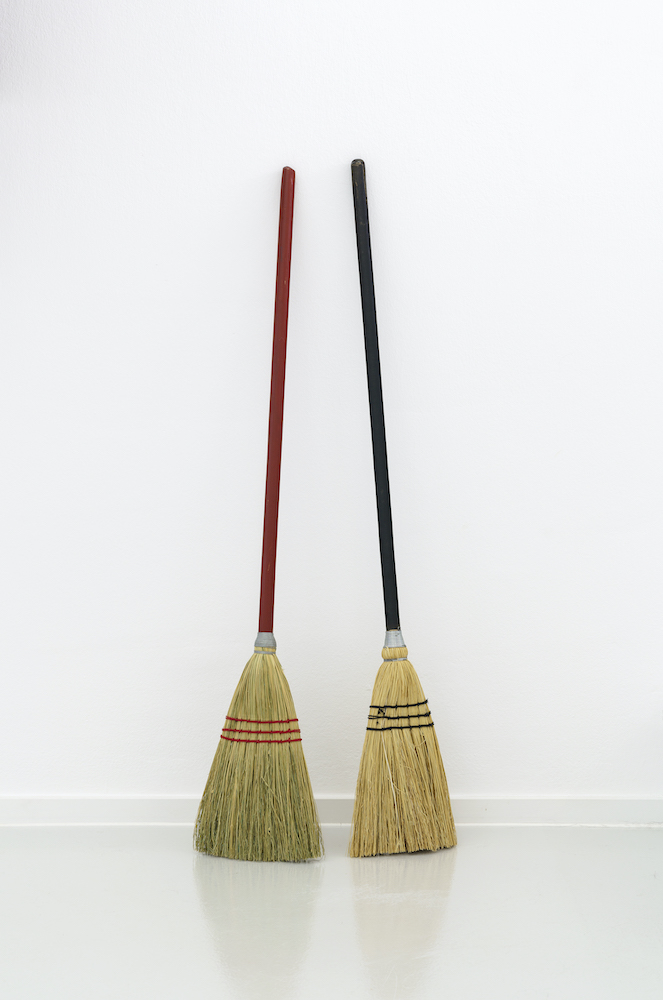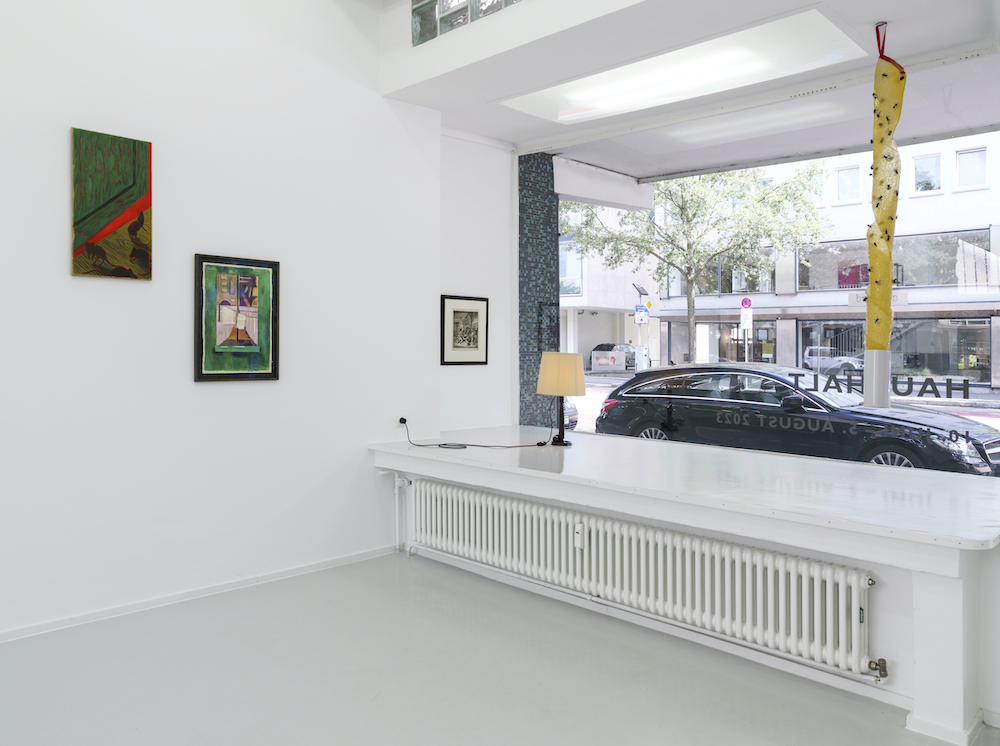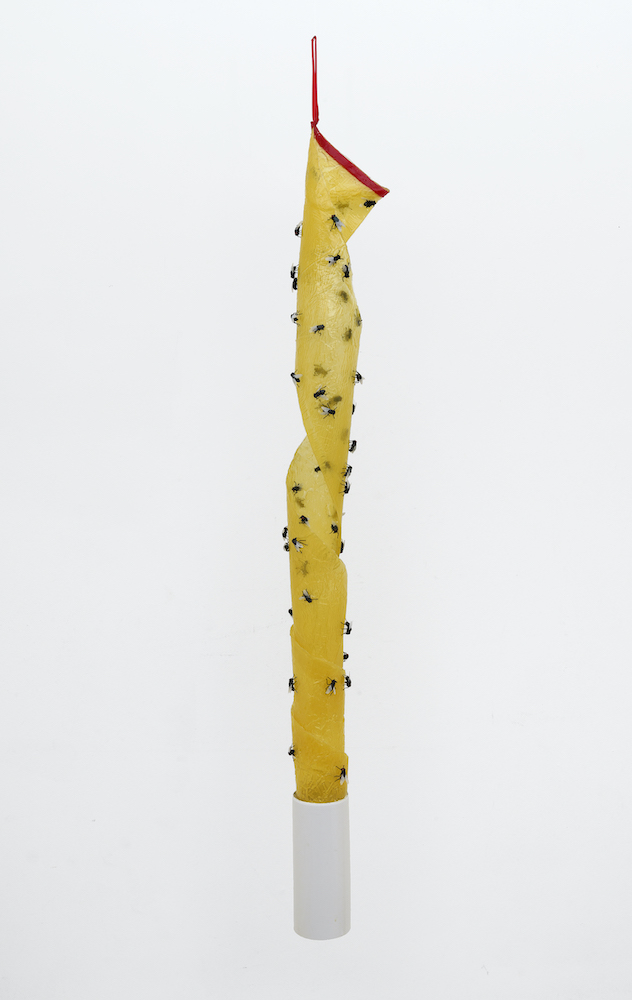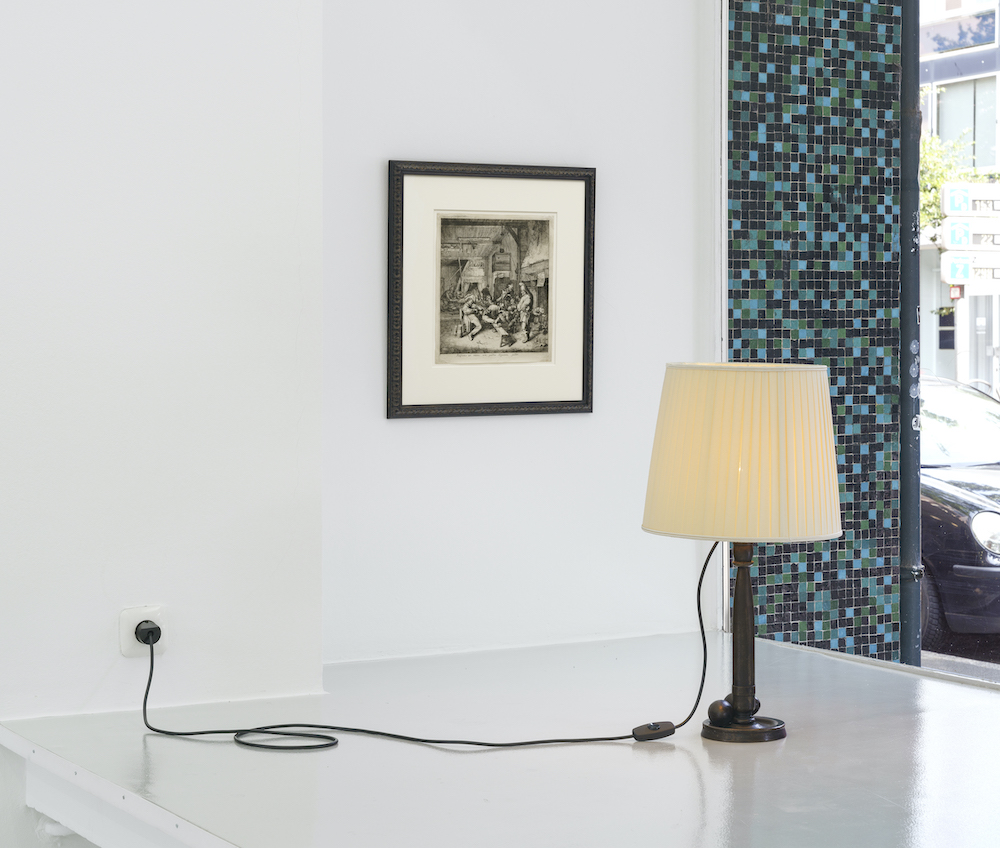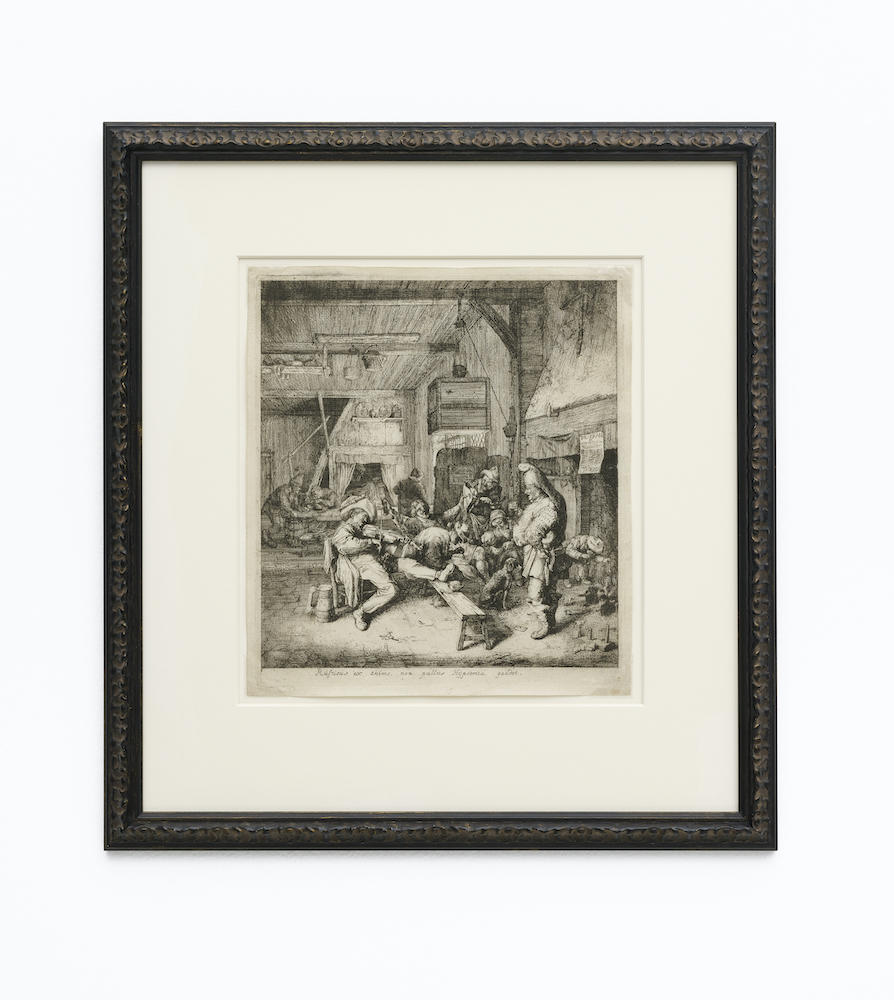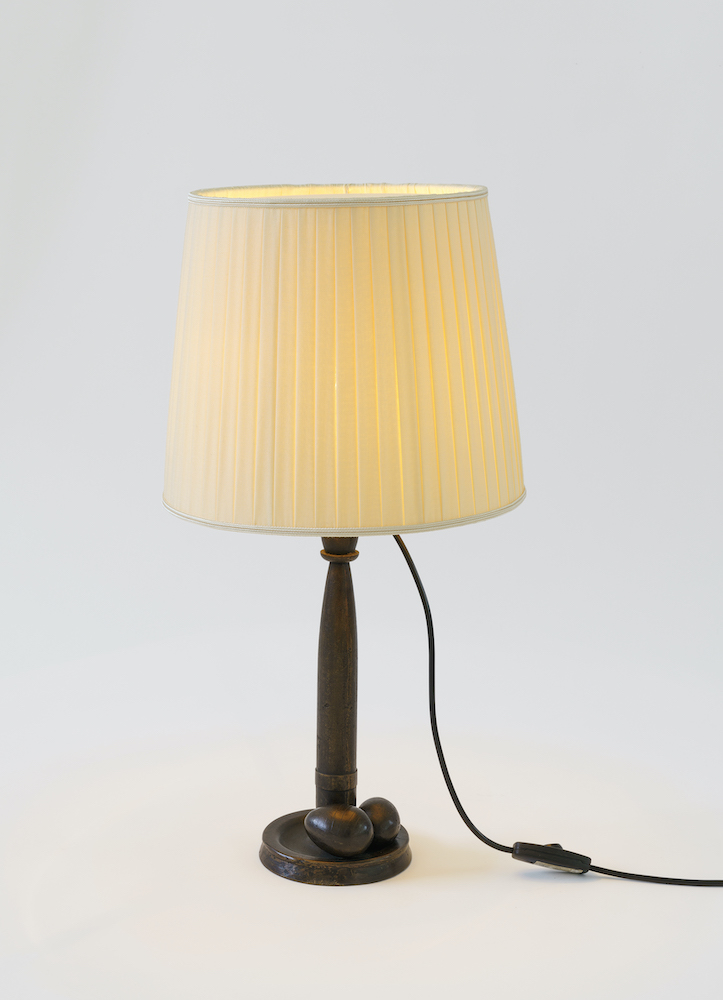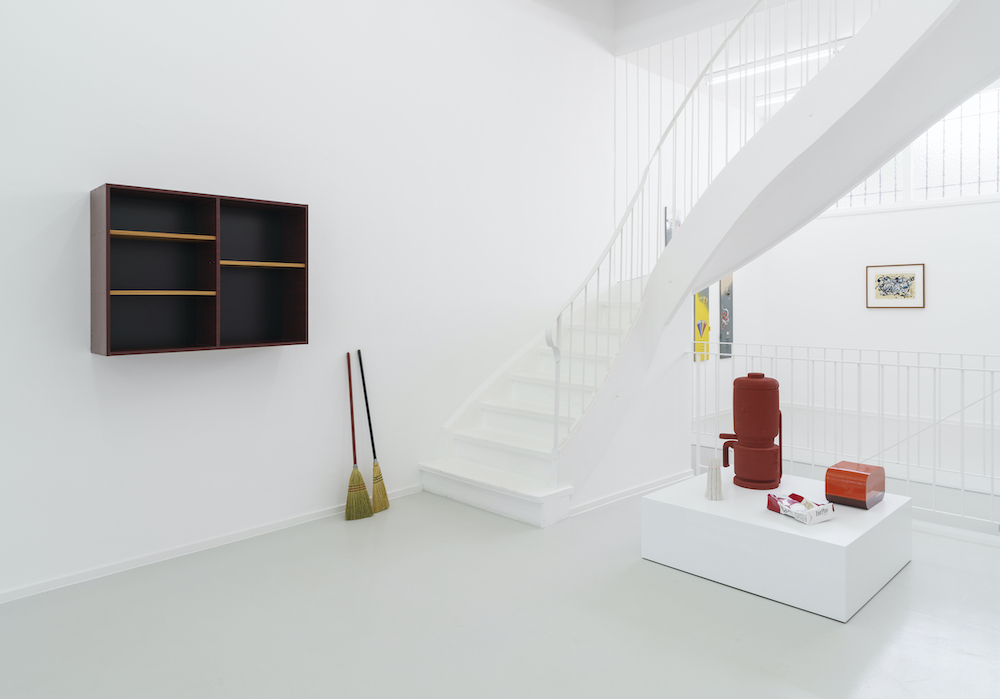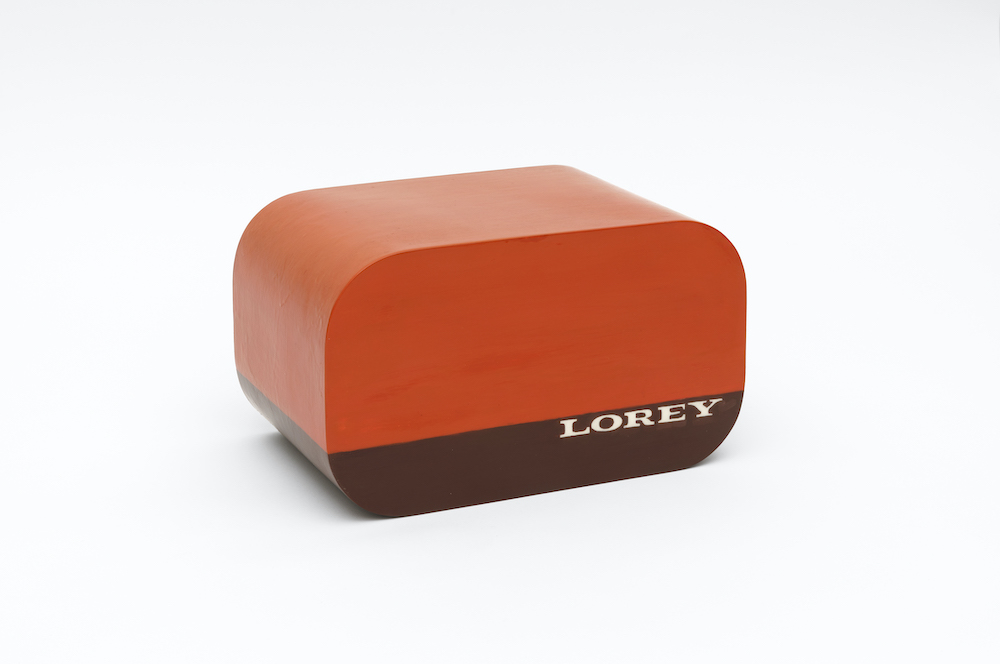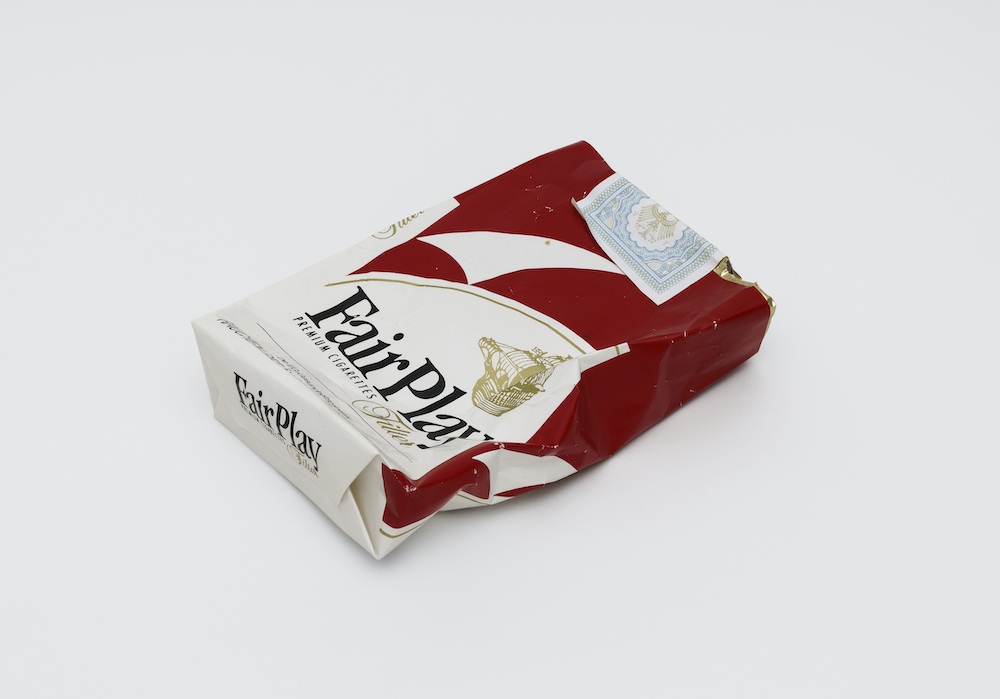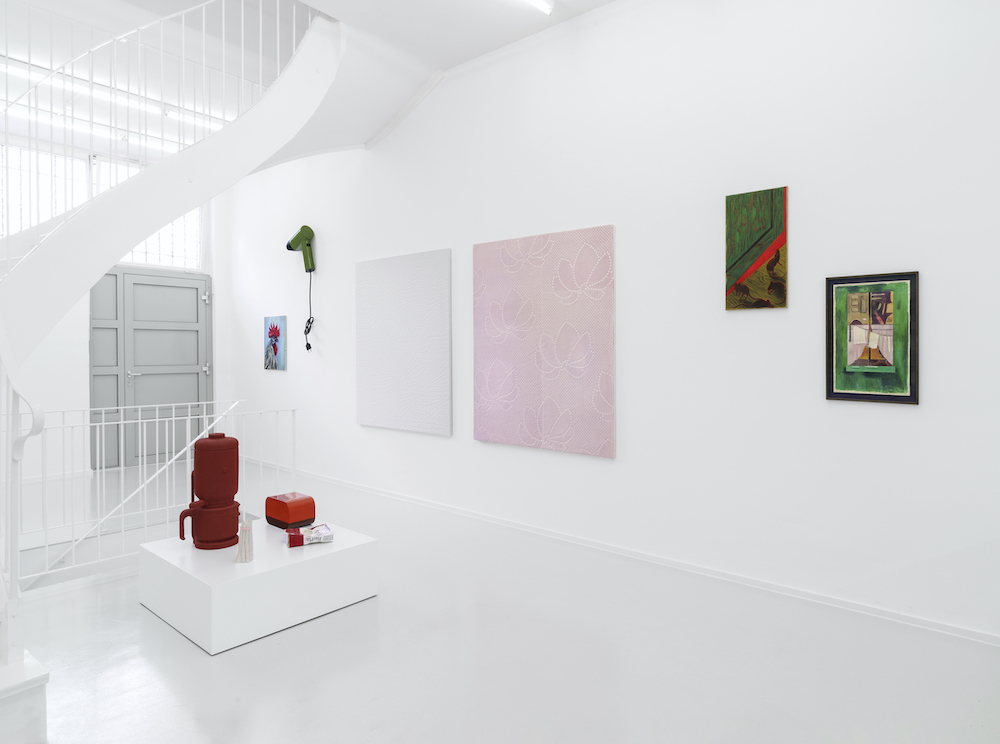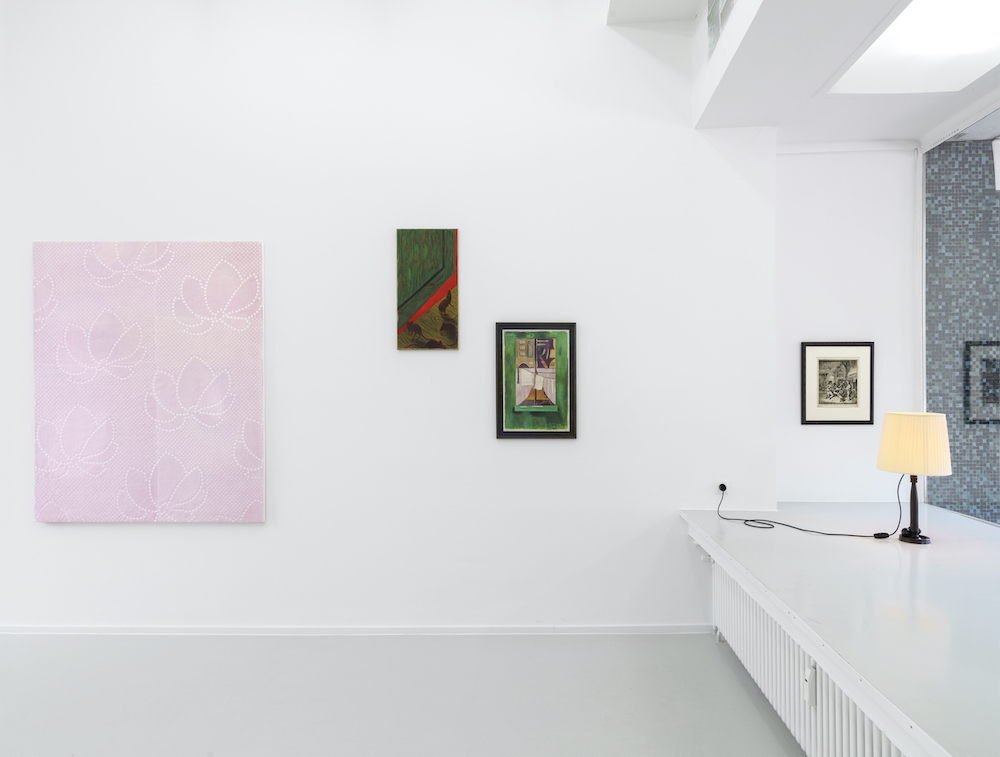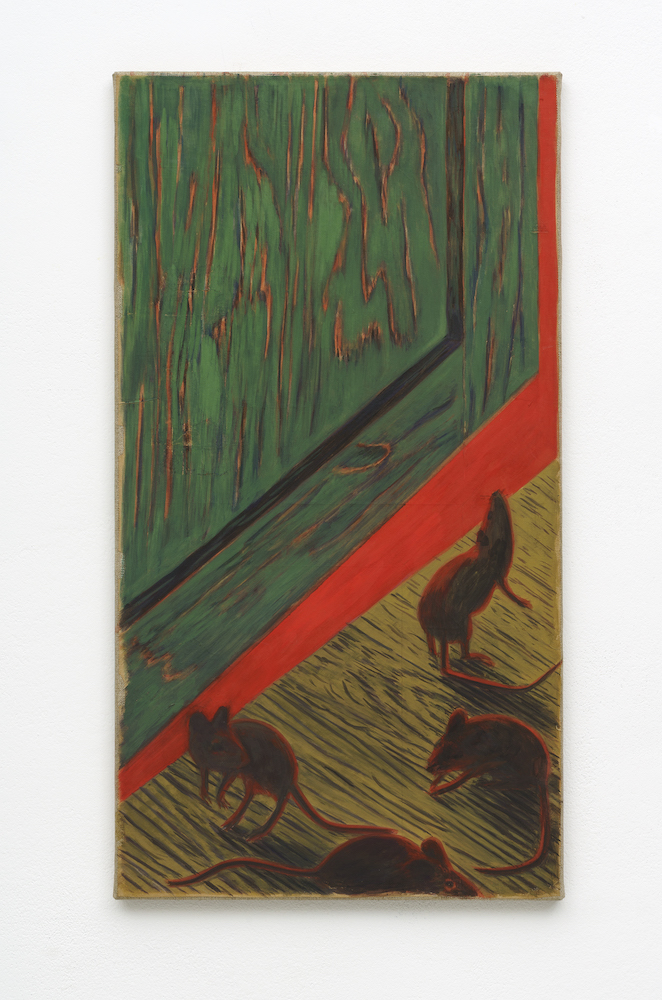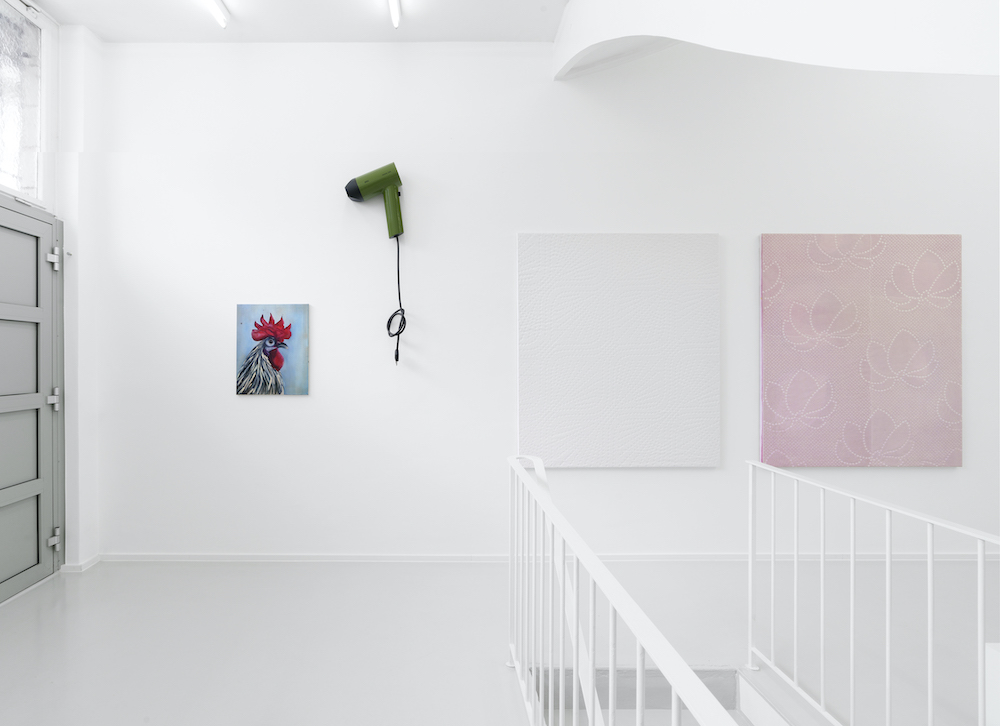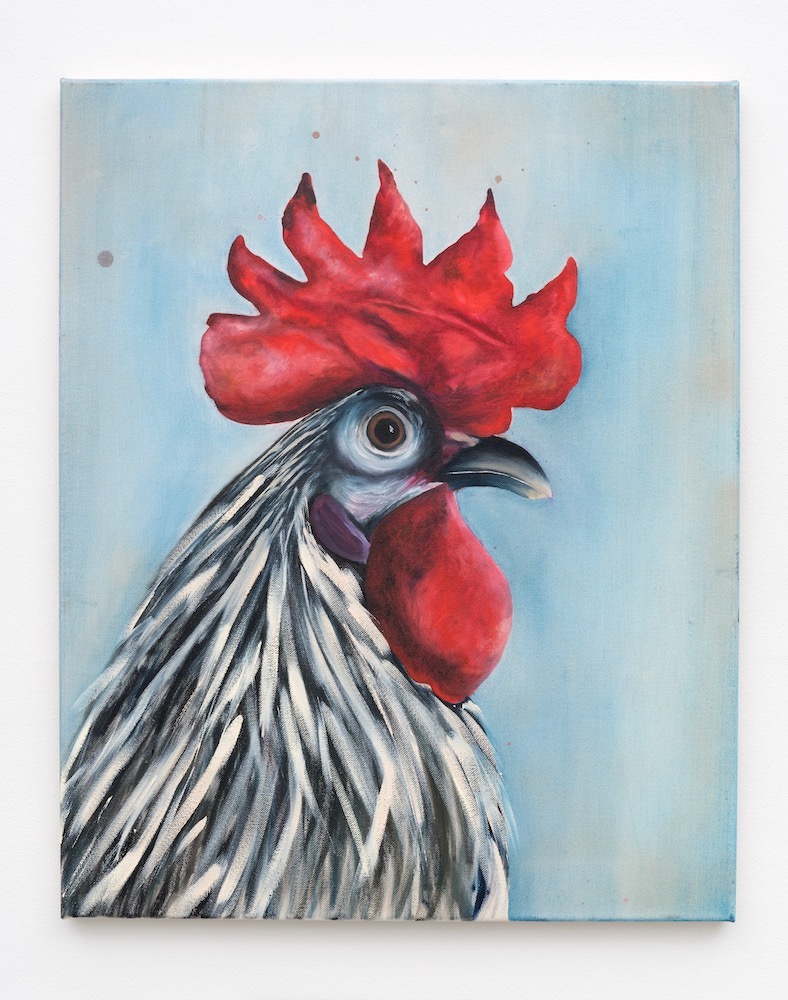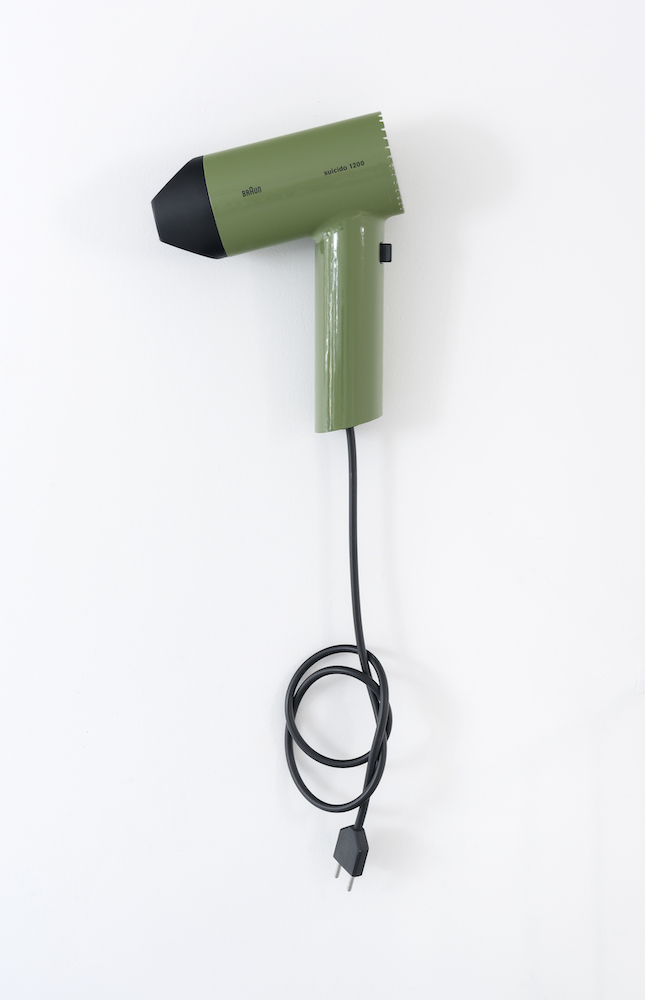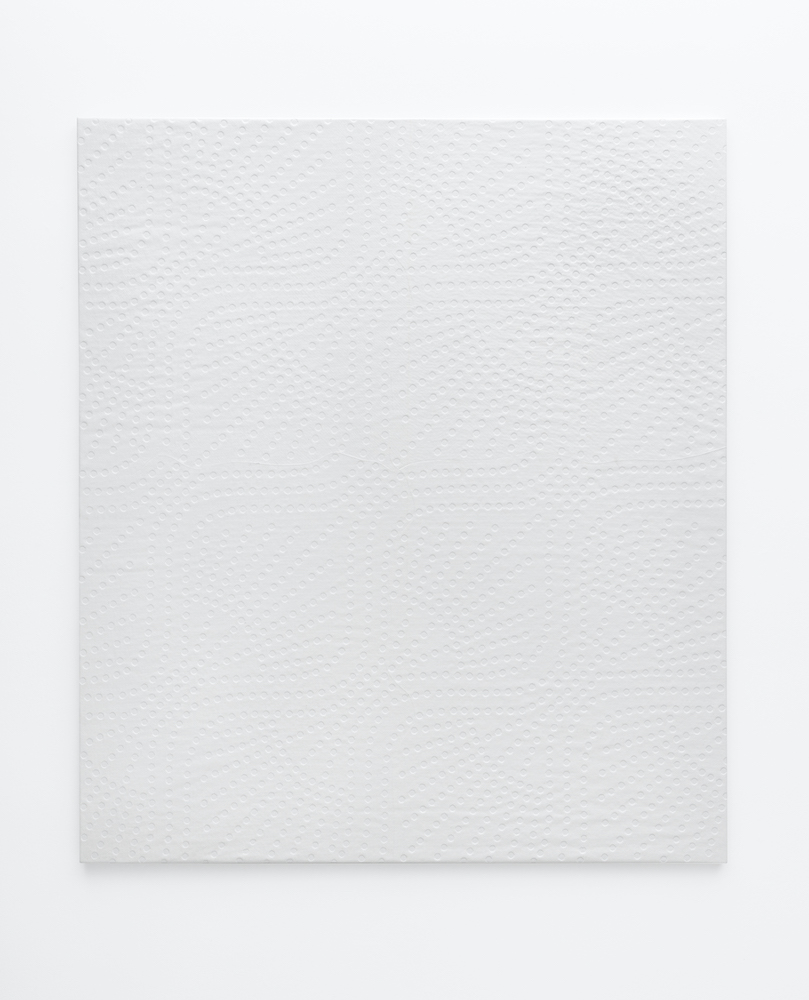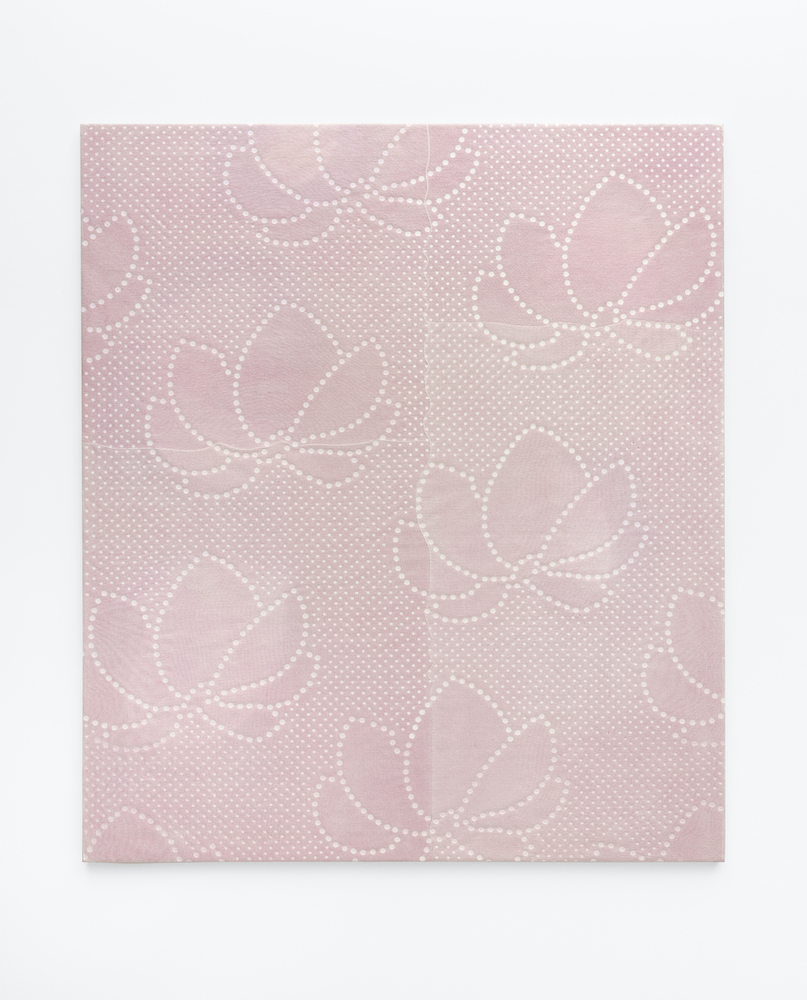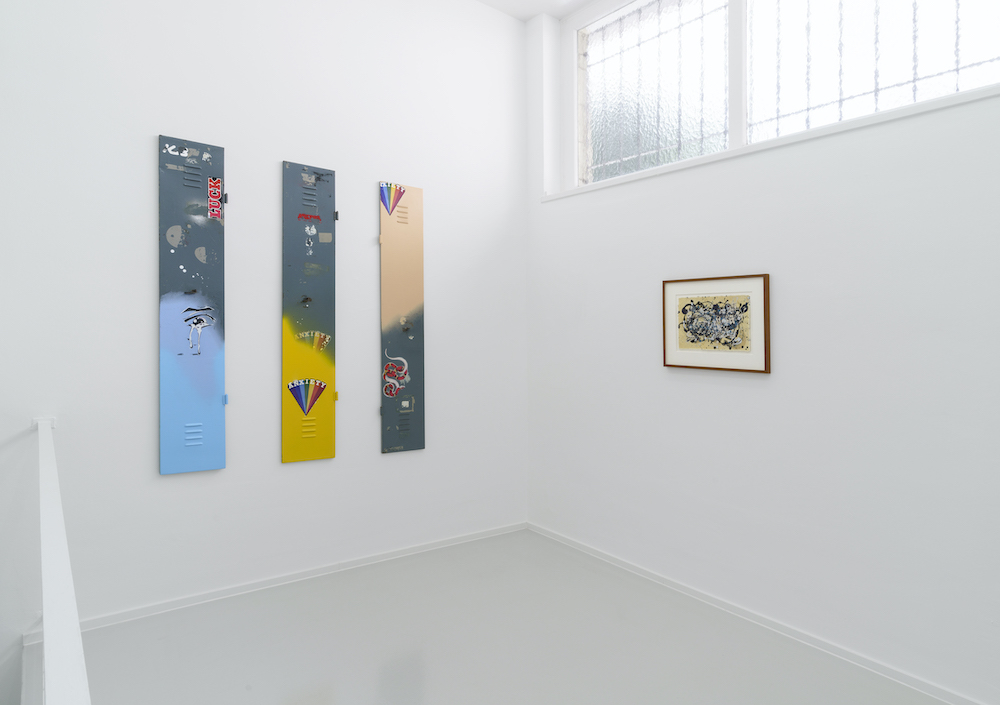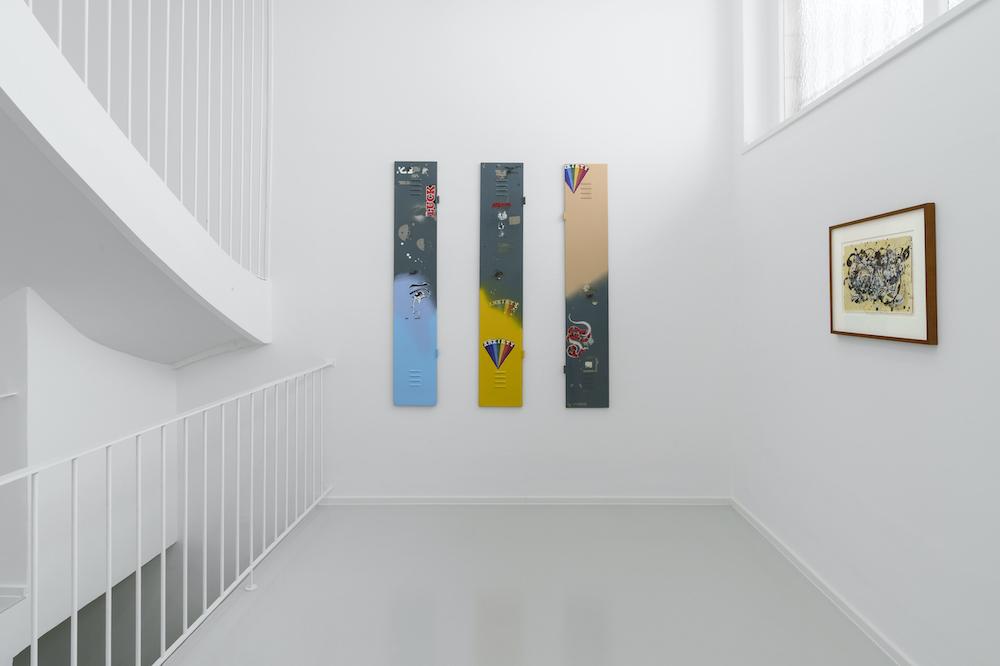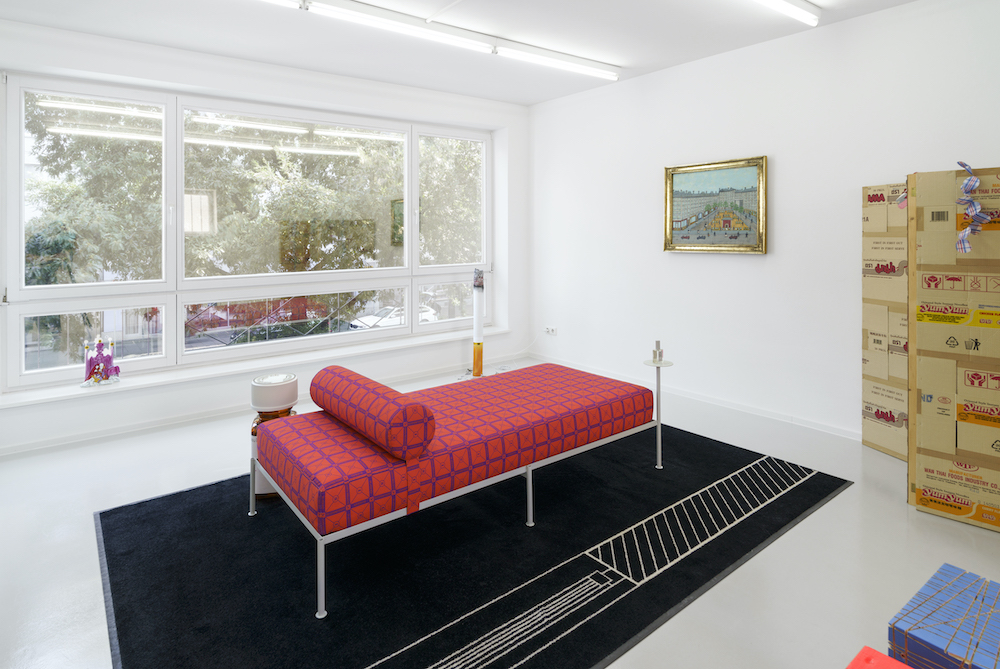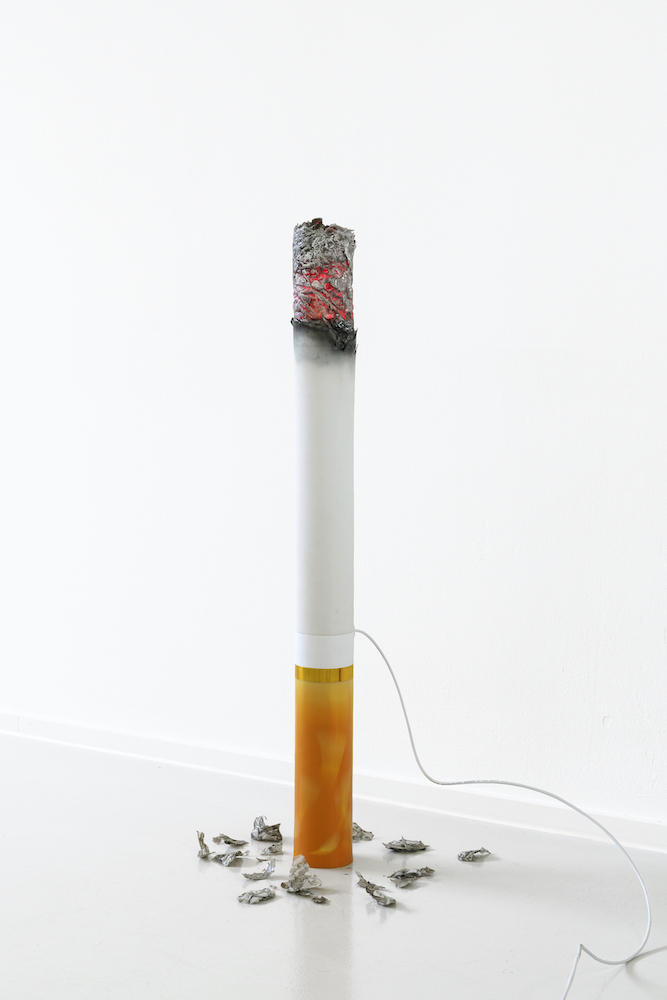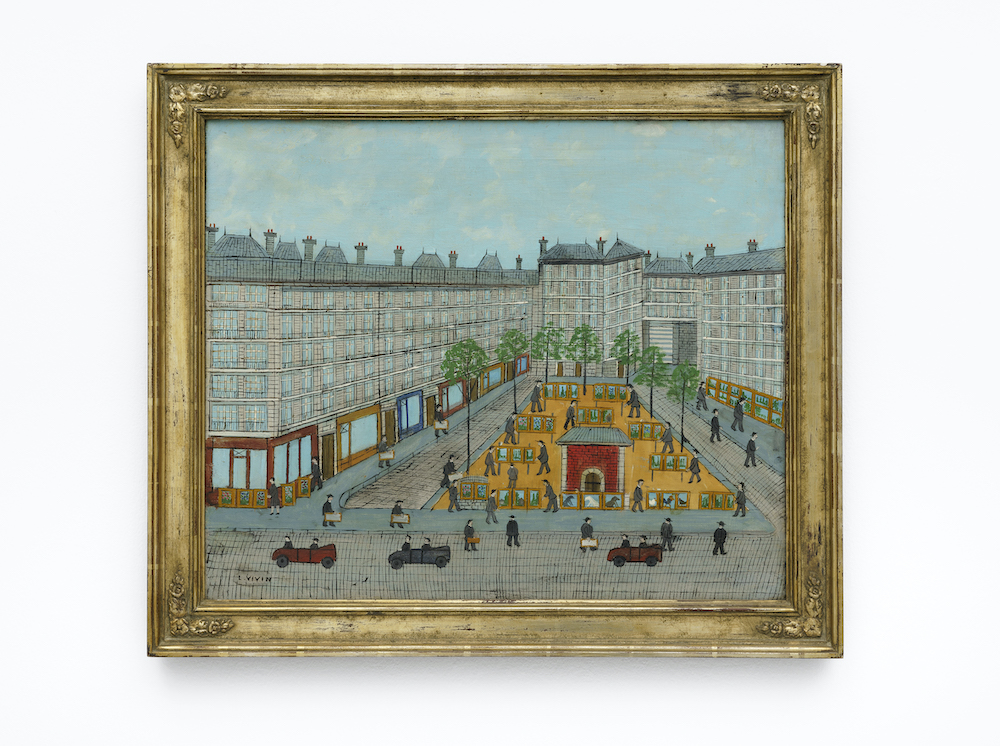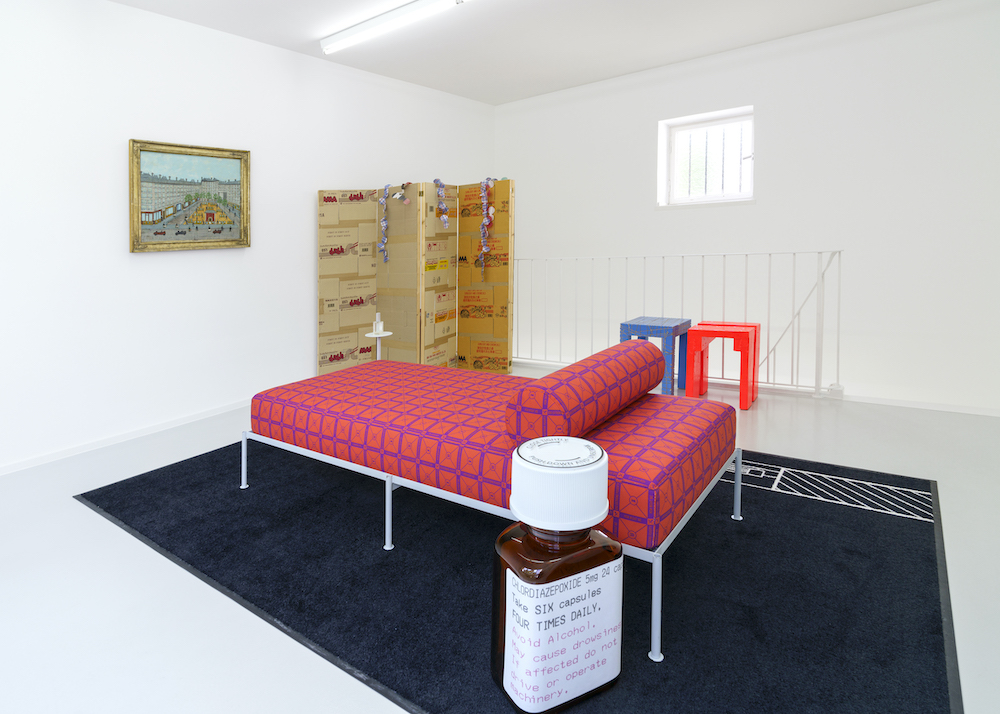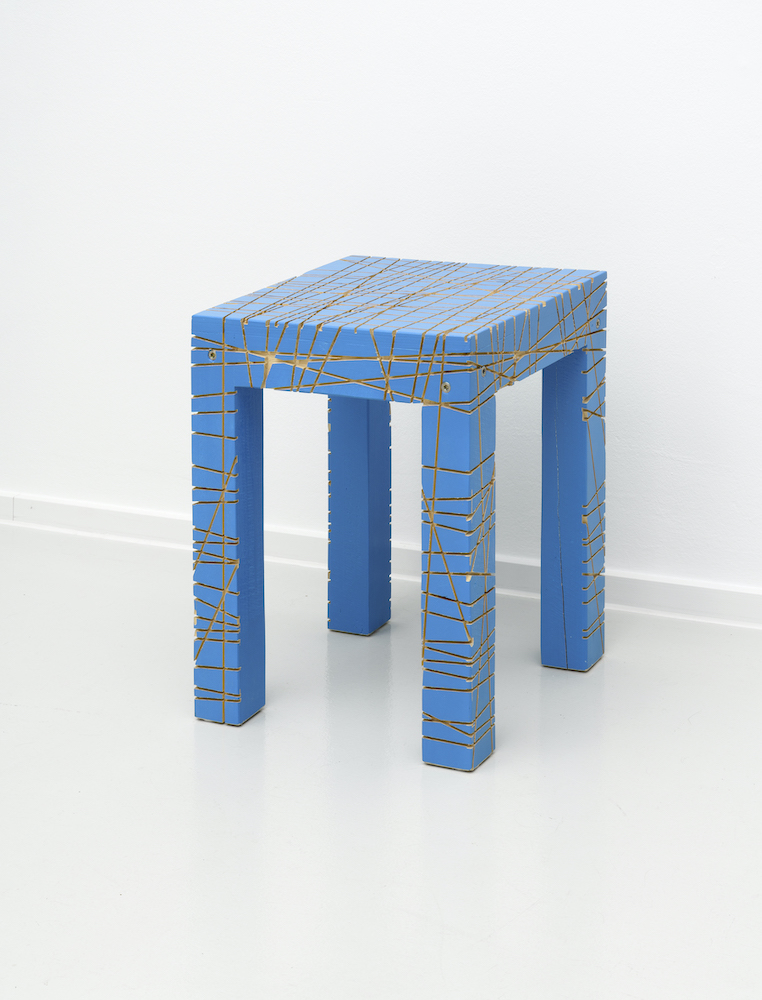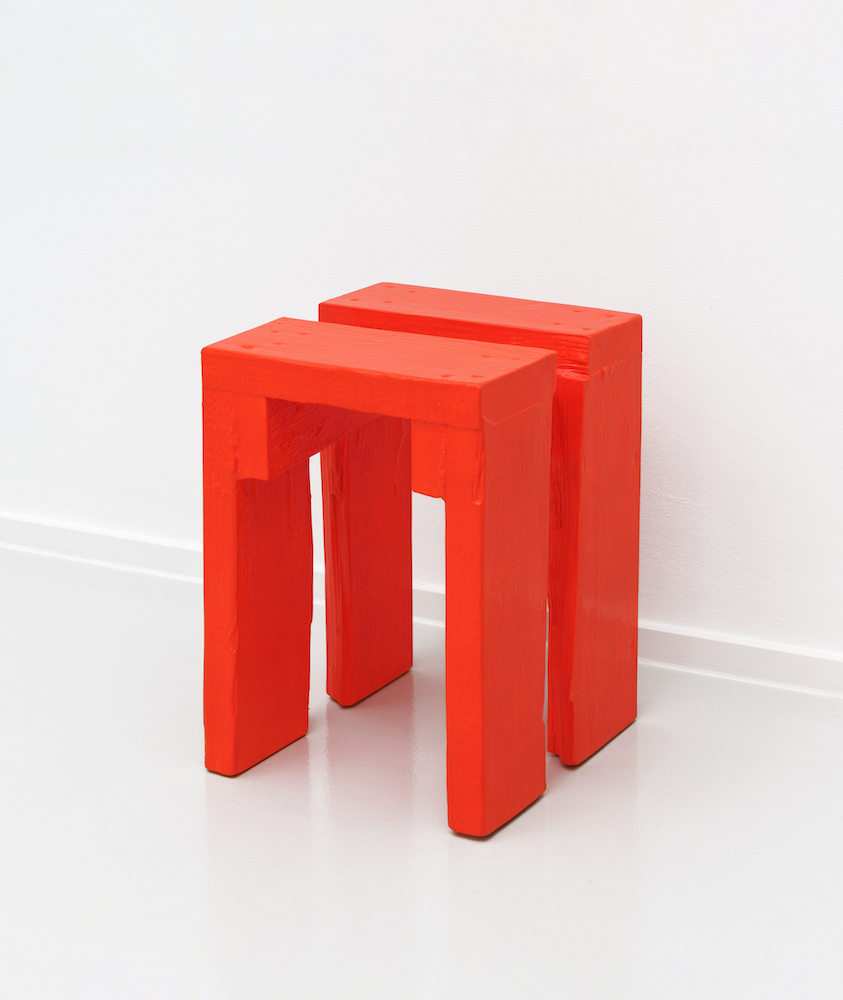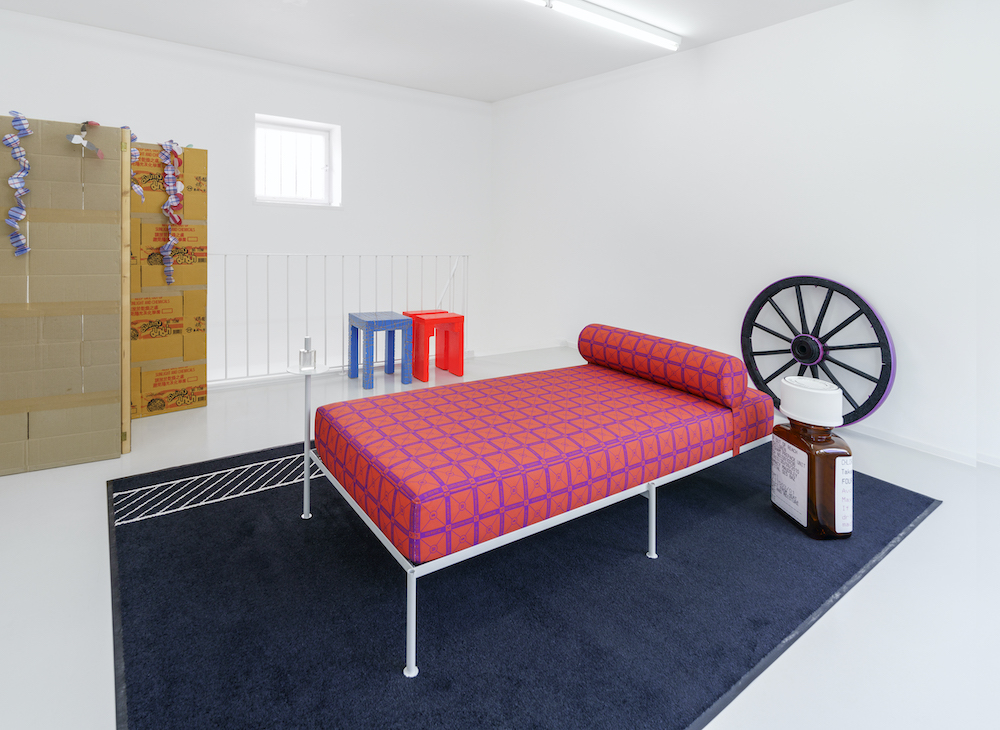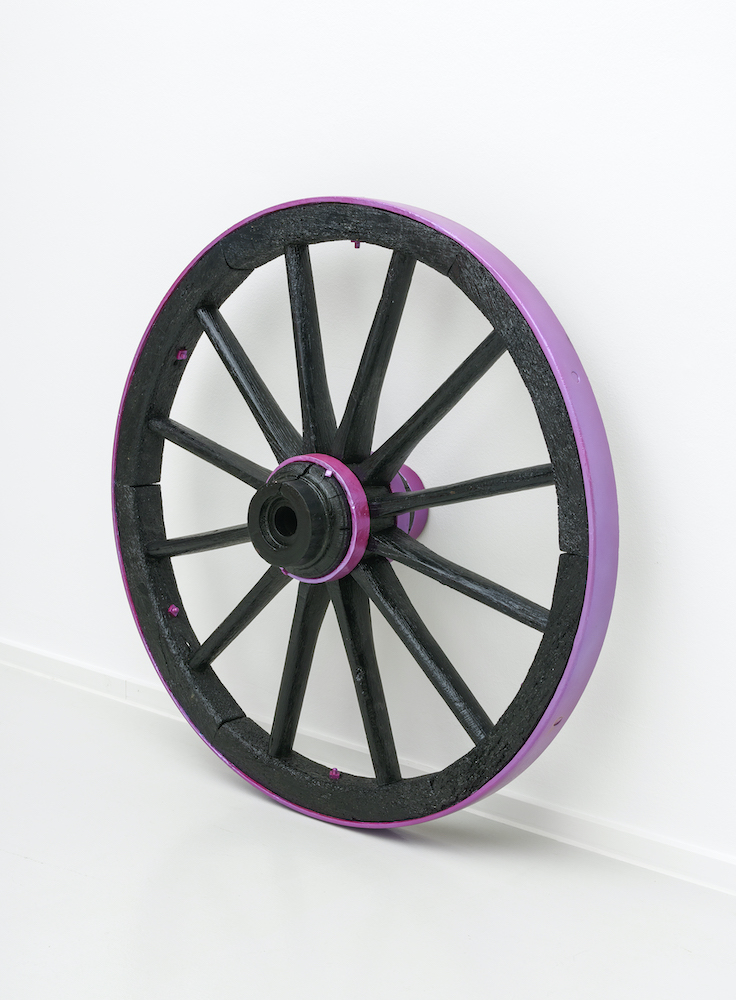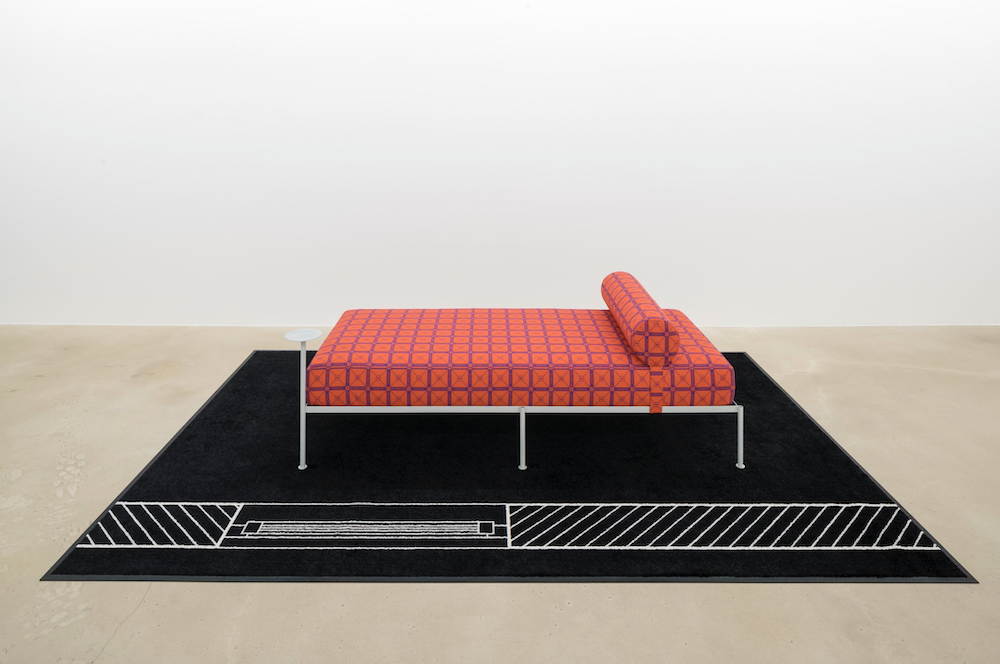HAUSHALT
Artworks
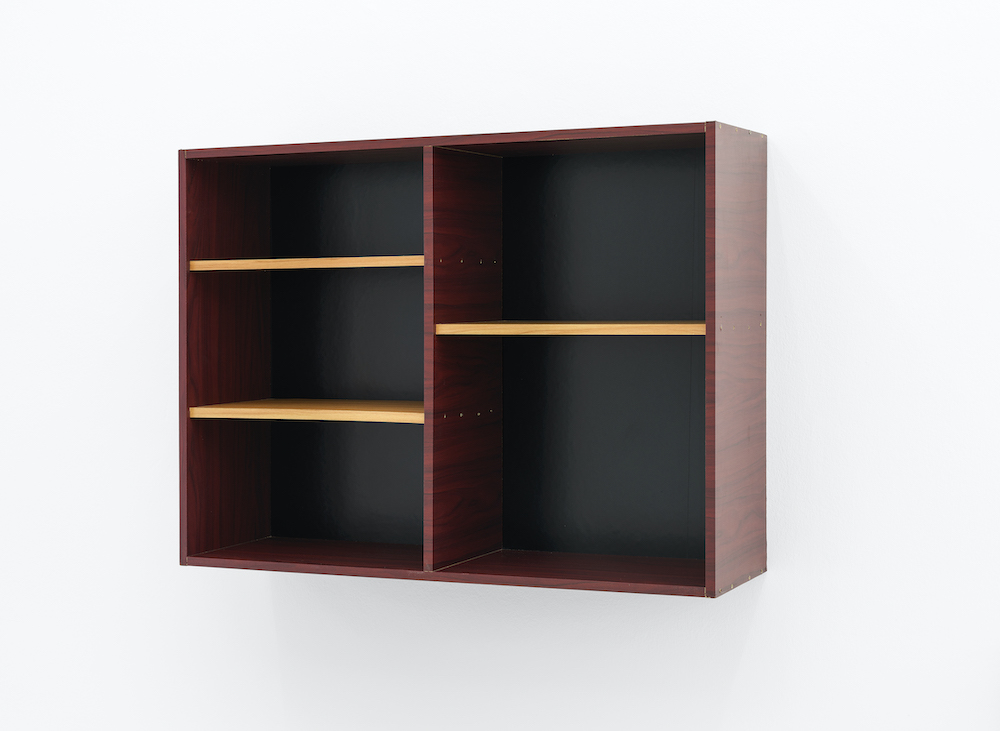
TOBIAS REHBERGER
Braunes Regal (A), 2004
Spanplatten mit DC-Fix beklebt, Mahagoni und Kirsch
75 x 100 x 30 cm
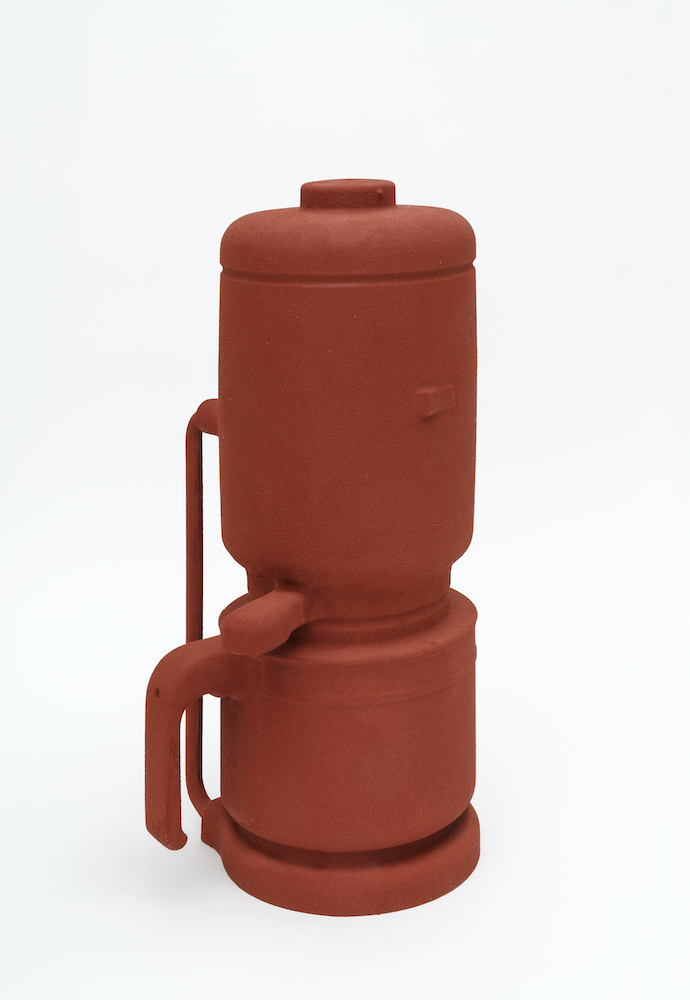
LENA HENKE
Every one of my buildings begins with an Italian journey (Kaffee), 2022
PU-Schaum, Pigmentfarbe, Gummi
58 x 32 x 34 cm
Ed. 2/6

MICHAEL PFROMMER
Ohne Titel (nach Oskar Schlemmer), 2016
Aquarelle und Gouache auf Zeitungspapier
56 x 39 cm
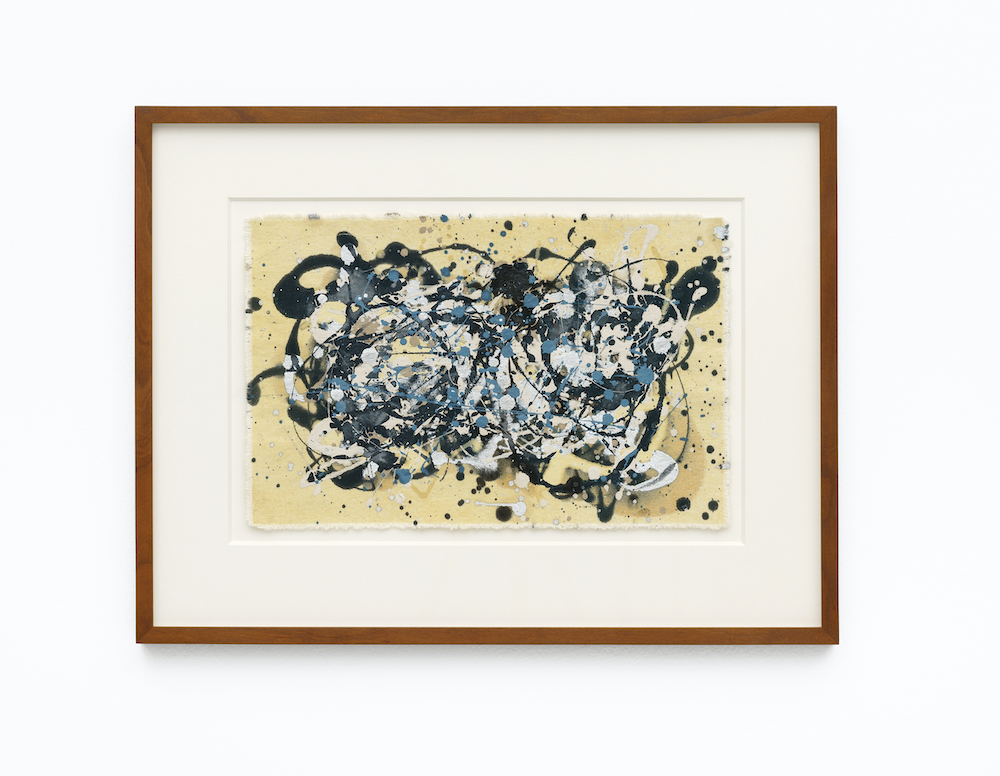
MIKE BIDLO
Jackson Pollock by Mike Bidlo, 1983
Lackfarbe und Acryl auf Leinwand, gerahmt
26,7 x 41,3 cm
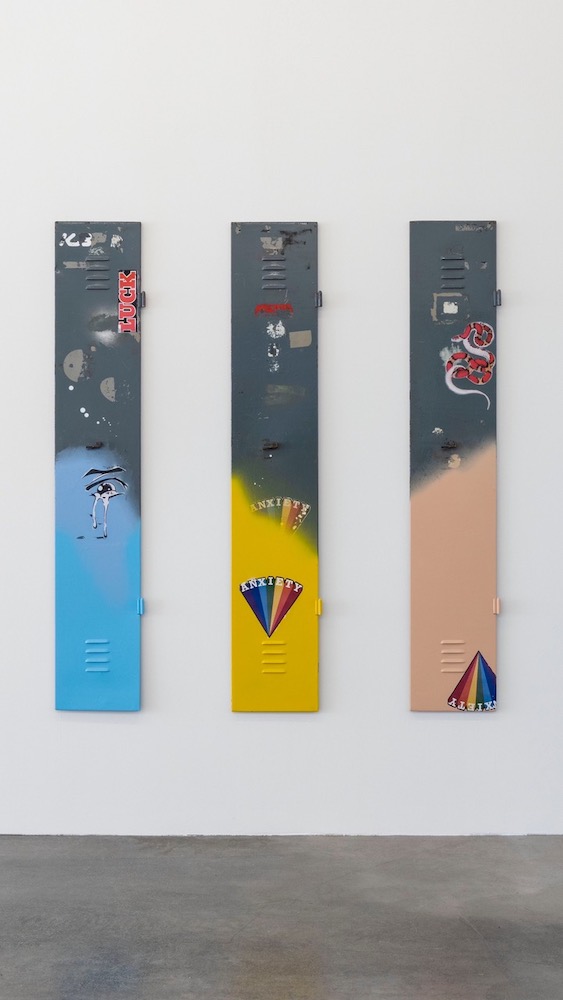
FELIX KULTAU
blue tears locker, 2022
Metall, Acryl und Digitaldruck
160 x 25 cm
masters locker, 2022
Metall, Acryl und Digitaldruck
160 x 25 cm
coral locker, 2022
Metall, Acryl und Digitaldruck
160 x 25 cm
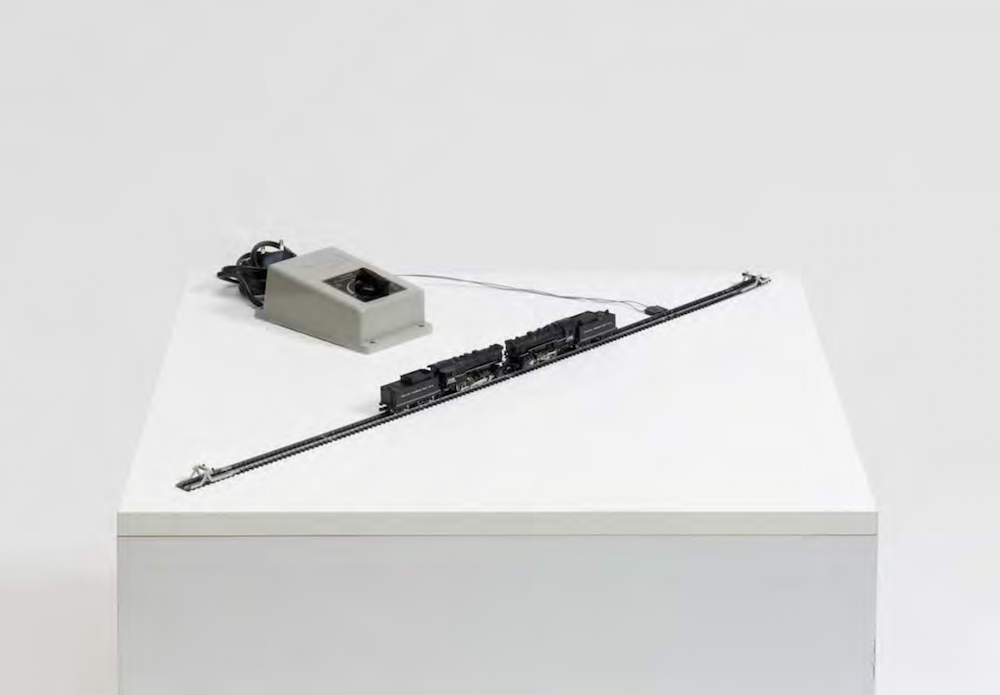
REINER RUTHENBECK
Kinetisches Objekt Nr.2 /Loks, 1973
Zwei Modell-Lokomotiven, Schienen, Prellböcke und Trafo auf Holz
59 x 59 x 40 cm
Ed. 7/10
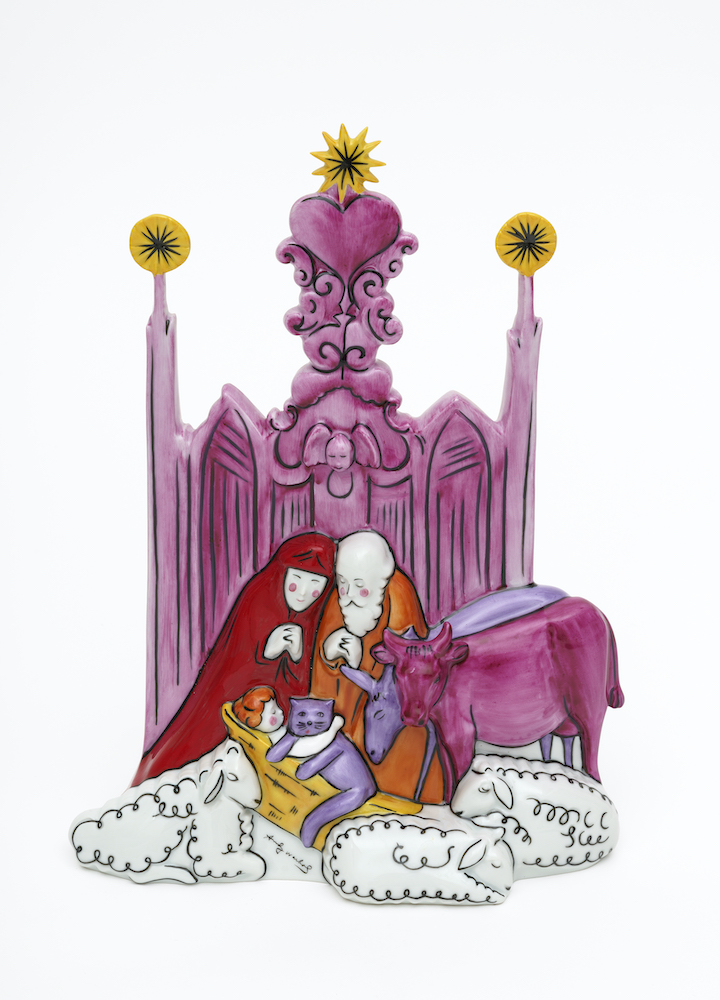
ANDY WARHOL
Andy’s Merry Christmas Krippe, 1970-1980
Porzellan, farbig gefasst und glasiert
29 x 21 x 10 cm
Ed. 34/99

SUNAH CHOI
Easy - Heavy, 2002
Paravent, Karton, Holz, Plastik-Tragetaschen, Kleidungsstücke
ca. 170 x 170 cm
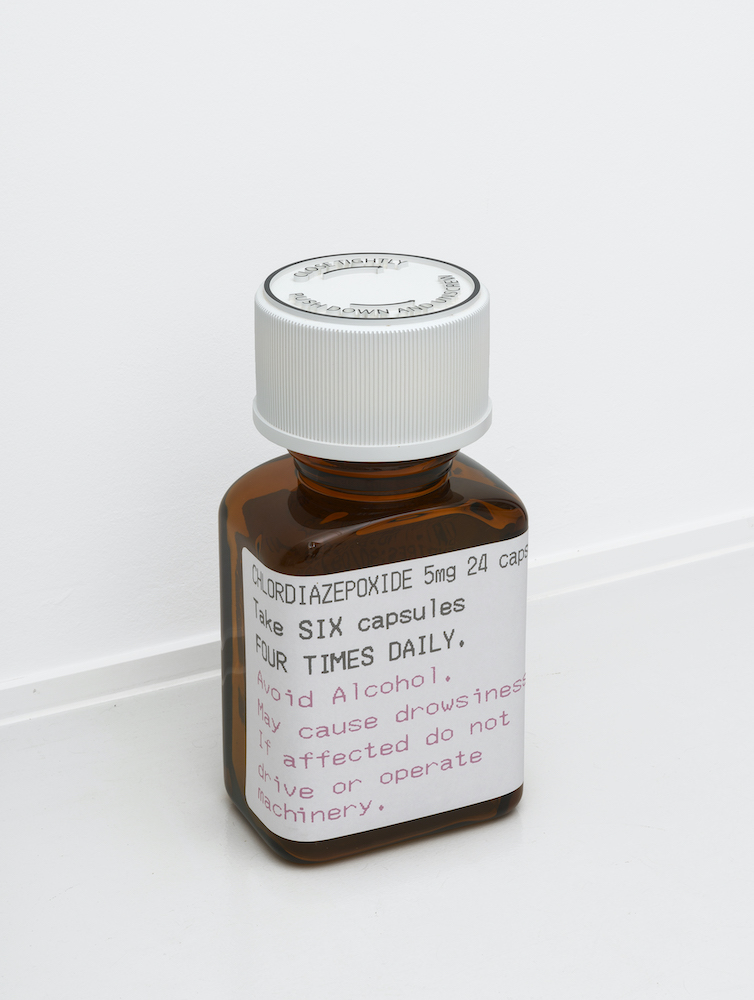
DAMIEN HIRST
Chlordiazepoxide 5mg 24 capsule, 2014
Polyurethan mit Farbpigmenten
54 x 27 x 22 cm
Ed.10/30
Information
please scroll down for the English version.
Spargel, Filterkaffeemaschine oder Besen: Das bisschen Haushalt ist erfrischend anders in der Gruppenausstellung „Haushalt“ bei PHILIPP PFLUG CONTEMPORARY, die vom 10. Juni bis 5. August in der Frankfurter Galerie zu sehen ist. Die Werke öffnen Tür und Tor in das Private hinein und verleihen der Tristesse des Alltags endlich den lang ersehnten „Glow Up“. Mit Werken von Andy Warhol bis Lena Henke beschäftigt sich die Ausstellung mit Gegenständen, Konsum und dem ganz normalen Wahnsinn: unserem Haushalt.
Morgens den Kaffee zubereiten, Tabletten nehmen, die Wohnung putzen, aufs Sofa legen, die Lampe anknipsen, Wäsche machen, Brotzeit essen, während man leicht gelangweilt auf ein Bild schaut, zur Arbeit gehen, nach Hause kommen, dann auf den Balkon setzten und rauchen, über den Paravent im Schlafzimmer die Kleidung ablegen und sich schlafen legen. Aufstehen und alles wieder auf Anfang. Unser Alltag ist geprägt von Gegenständen, die ganz selbstverständlich unser Leben tagein tagaus begleiten. Sie lösen sich in unserer Wahrnehmung fast auf, sind unaufgeregter Teil unseres Zuhauses, unseres sogenannten „Haushalts". Alles hat einen Platz, es gibt eine Ordnung – oder nichts hat einen Platz und alles versinkt im Chaos. Man könnte sagen, die ausgestellten Kunstwerke bei PHILIPP PFLUG CONTEMPORARY verweisen auf ein Leben, so wie unser eigener Haushalt auf unser Leben verweist. Alle Gegenstände in der Gesamtheit erzeugen ein Ganzes, eine Einheit, in der das eine in das andere greift. Betrachtet man jedes Objekt singulär, so wie in der Galerie, imaginiert man fast einen Umzug: Jeder Gegenstand muss einmal durch die Hände gleiten, begutachtet werden und jedes einzelne Objekt wird emotional aufgeladen.
Mit der Ausstellung „Haushalt“ wagen wir einen Blick in ein Land der heimlichen Ödnis, das sich in den Räumen der Galerie in ein Land der Lust, des Schmunzelns und der Begeisterung verwandelt. Ein Augenblick der Kontemplation über all das Gewöhnliche in unseren eigenen vier Wänden. Die Kunstwerke kennt man, könnte man meinen, kommen einem bekannt und vertraut vor. Doch entdecken wir im White Cube alles neu, denn das hier ist nicht unser Zuhause, nicht unser Haushalt.
Der heilige Kaffee bekommt in der Arbeit „Every one of my buildings begins with an Italian journey (Kaffee)“ – 2022 von Lena Henke – eine neue Bedeutung zugeschrieben. Mittels der Abstraktheit der Maschine, der Einfarbigkeit und der seriellen Arbeit erforscht die Künstlerin den physischen Raum, in dem sie lebt und arbeitet. Die Skulptur imitiert ein ikonisches Braun-Gerät der Nachkriegszeit, die Kaffeemaschine KF 20 „Aromaster“ aus dem Jahr 1972. Die Maschine ist um das 1,5-Fache vergrößert worden, verglichen mit dem Original. Es macht die Kaffeemaschine zu einem unfunktionalen häuslichen Gegenstand und hinterfragt und zerstört das Häusliche mit seiner Ordnung. Die Arbeit „Zigarettenschachtel“, 2003, von Vincent Tavenne, verweist auf den rituellen Charakter, der dem Alltag und dem häuslichen Leben innewohnt. Die Zigarette nach dem Sex, nach dem Essen, am Fenster am Abend zum Abschluss eines Tages ist nicht der Gegenstand, sondern der Konsum des Alltags, der sich mal mehr mal weniger im häuslichen oder im öffentlichen austrägt. Den Moment der aufbewahrten Erinnerung im Haushalt symbolisiert das Werk "Kinetisches Objekt Nr.2 /Loks“, 1973, von Reiner Ruthenbeck. Kindliche Assoziationen werden geweckt, die als Gegenstand nur gelegentlich eine Relevanz in der Gegenwart haben.
Die Ausstellung bei PHILIPP PFLUG CONTEMPORARY erschafft ein Vokabular des Haushalts. Räumliche und soziale Strukturen werden aufgebrochen. Vertrautes kann humoristisch hinterfragt, bewundert und neu entdeckt werden. Man steht vor einem Haufen Erinnerungen, die durch ein Transportunternehmen gleich abgeholt werden könnten. Ein ganzes Leben passt in die Galerie.
Mit Werken von:
JAGODA BEDNARSKY, MIKE BIDLO, COSIMA VON BONIN, FRANK BRECHTER, A.A. BRONSON/J.X. WILLIAMS, SUNAH CHOI, TOBIAS DONAT, CORNELIS DUSART, LENA HENKE, DAMIEN HIRST, STEFAN KERN, MANUEL KIRSCH, FELIX KULTAU, MICHAEL PFROMMER, TOBIAS REHBERGER, ANSELM REYLE, REINER RUTHENBECK, VINCENT TAVENNE, LOUIS VIVIN, ANDY WARHOL, MARTIN WENZEL.
Text: Theresa Weise
Asparagus, filter coffee machine or broom: Household chores are presented from a refreshingly different perspective in the group show “Haushalt” at PHILIPP PFLUG CONTEMPORARY, on view at the Frankfurt gallery from June 10 through to August 5, 2023. The works allow us a peek into the private sphere and provide the long-awaited “glow up” for our dreary daily routine. Featuring works by artists ranging from Andy Warhol to Lena Henke, the exhibition looks at objects, consumption, and the ordinary everyday madness related to our housekeeping.
Making coffee in the morning, taking medications, cleaning the apartment, lying on the sofa, turning on the lamp, doing laundry, eating a snack while looking at a picture slightly bored, going to work, coming home, then sitting on the balcony and smoking, putting clothes down over the folding-screen in the bedroom and going to sleep. Getting up and starting over. Our daily routine is shaped by objects that accompany our everyday life as a matter of course. They almost fade from our perception, form an inconspicuous part of our home, our so-called “household”. Everything has its place, and there is order – or nothing has its place and we descend into chaos. You could say that the artworks exhibited at PHILIPP PFLUG CONTEMPORARY reference a life, much as our own household items point to our own lives. The objects in their entirety create a whole, a unit in which one thing dovetails with the next. If we look at every object individually, as one does in a gallery, we are almost prompted to imagine moving house: Every single object needs to be handled and assessed, and every item is emotionally charged.
In the exhibition “Haushalt” we dare to cast a glance at a secret wasteland, which in the rooms of the gallery is turned into a terrain of delight, amusement, and exhilaration. A moment of contemplation of all the ordinary things and occurrences in our homes. The feeling arises that we know these artworks, they feel familiar and recognizable. Yet in the white cube we discover everything anew, because this is not our home, not our household.
The venerated coffee is imbued with new meaning in the piece “Every one of my buildings begins with an Italian journey (Kaffee)” created by Lena Henke in 2022. The artist explores the physical space in which she lives through the abstraction of the machine, the monochromacity and serial work. The sculpture imitates an iconic post-War machine by Braun, the coffee maker “Aromaster KF 20” from the year 1972. Compared to the original, Henke’s machine has been enlarged 1.5 times. This turns the coffee machine into a non-functional household item, questioning and shattering the domestic order. The piece “Zigarettenschachtel” (2003) by Vincent Tavenne points to the ritual character inherent in our everyday and domestic life. The cigarette after sex, after food, or at the window in the evening to conclude a day, is not the object but the consumption of the everyday, performed at times in the private and at others in the public sphere. The moment of a memory preserved in a household is symbolized in the piece “Kinetisches Objekt Nr.2 /Loks” (1973) by Reiner Ruthenbeck. Child-like associations are awakened that have only limited objective relevance in our present day.
The exhibition at PHILIPP PFLUG CONTEMPORARY creates a vocabulary of the household. Spatial and social structures are prized open. Familiar things are humorously questioned, admired, rediscovered. We encounter a pile of memories, ready to be taken away by a hauling company. An entire life fits into the gallery.
With works by:
JAGODA BEDNARSKY, MIKE BIDLO, COSIMA VON BONIN, FRANK BRECHTER, A.A. BRONSON/J.X. WILLIAMS, SUNAH CHOI, TOBIAS DONAT, CORNELIS DUSART, LENA HENKE, DAMIEN HIRST, STEFAN KERN, MANUEL KIRSCH, FELIX KULTAU, MICHAEL PFROMMER, TOBIAS REHBERGER, ANSELM REYLE, REINER RUTHENBECK, VINCENT TAVENNE, LOUIS VIVIN, ANDY WARHOL, MARTIN WENZEL.
Text: Theresa Weise
